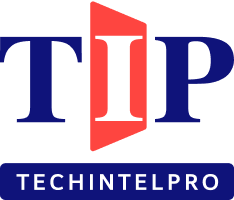

Selling has never been more challenging or more complex. Revenue leaders everywhere are feeling the squeeze. They need to drive productivity, keep costs in check, and somehow stay ahead in an economy that’s constantly shifting.
Recently, Salesforce hosted a webinar diving deep into these challenges and how their Revenue Cloud is designed to address them. The session featured Annie Wright (VP, Product Marketing), Tiffany Lin (Sr. Manager, Product Marketing), and Augustine Prosper Ro (Lead Solution Engineer), who shared the realities of modern revenue operations and how Salesforce is tackling them head-on.
Companies want to grow faster by launching new sales channels, experimenting with new revenue models, and adapting with innovative products and pricing strategies. But doing this in a turbulent economy adds another layer of complexity.
AI is speeding everything up. Organizations are expected to respond faster and be more agile than ever. Products are hitting the market quicker, and new consumption models are becoming popular as companies monetize their own AI innovations.
Unfortunately, most companies are stuck with outdated revenue processes. Under the hood, selling and recognizing revenue isn’t simple. There are approvals, manual follow-ups, and layers of compliance, often managed in spreadsheets or legacy homegrown systems. That’s not just inefficient; it’s risky.
Salesforce Revenue Cloud aims to eliminate the “messy middle” with a complete revenue platform.
Built API-first and composable, Revenue Cloud lets businesses treat each part of the revenue process — quoting, pricing, ordering, billing — as modular APIs. These are business process APIs. This flexibility means you can plug & play what you need and future-proof your revenue operations for growth.
Tiffany Lin walked through some standout capabilities:
Product Configurator: A dynamic, constraint-based engine that helps teams build accurate product configurations every time. It reduces redundant rules, cuts admin overhead, and speeds up performance, even for quotes with thousands of line items. This means faster product launches and more time for sales teams to actually sell.
Quoting Agent: Intelligence embedded directly into your revenue process. Because Revenue Cloud is API-first, the Quoting Agent can be accessed by both humans and AI-powered agents. It ensures speed and compliance are baked into every quote.
Dynamic Revenue Orchestrator: Streamlines the entire order-to-cash process. It breaks down complex commercial orders into technical fulfillment tasks, while giving complete visibility at every stage. No more juggling disconnected systems or mismatched fulfillment processes.
Analytics Dashboards: Four built-in dashboards provide instant visibility into key metrics across the revenue lifecycle:
Prosper Ro also demoed the platform live, showing how intuitive and connected the experience is across different functions.
Beyond its modular, API-first architecture, Revenue Cloud offers a highly customizable user experience. Companies can tailor every interaction to match their business model, ensuring a seamless buying experience across every touchpoint.
In today’s market, where speed and agility are essential, having the right revenue infrastructure isn’t optional; it’s survival. And Salesforce is betting that Revenue Cloud is exactly the kind of platform revenue leaders need to simplify the complex, reduce risk, and unlock growth.